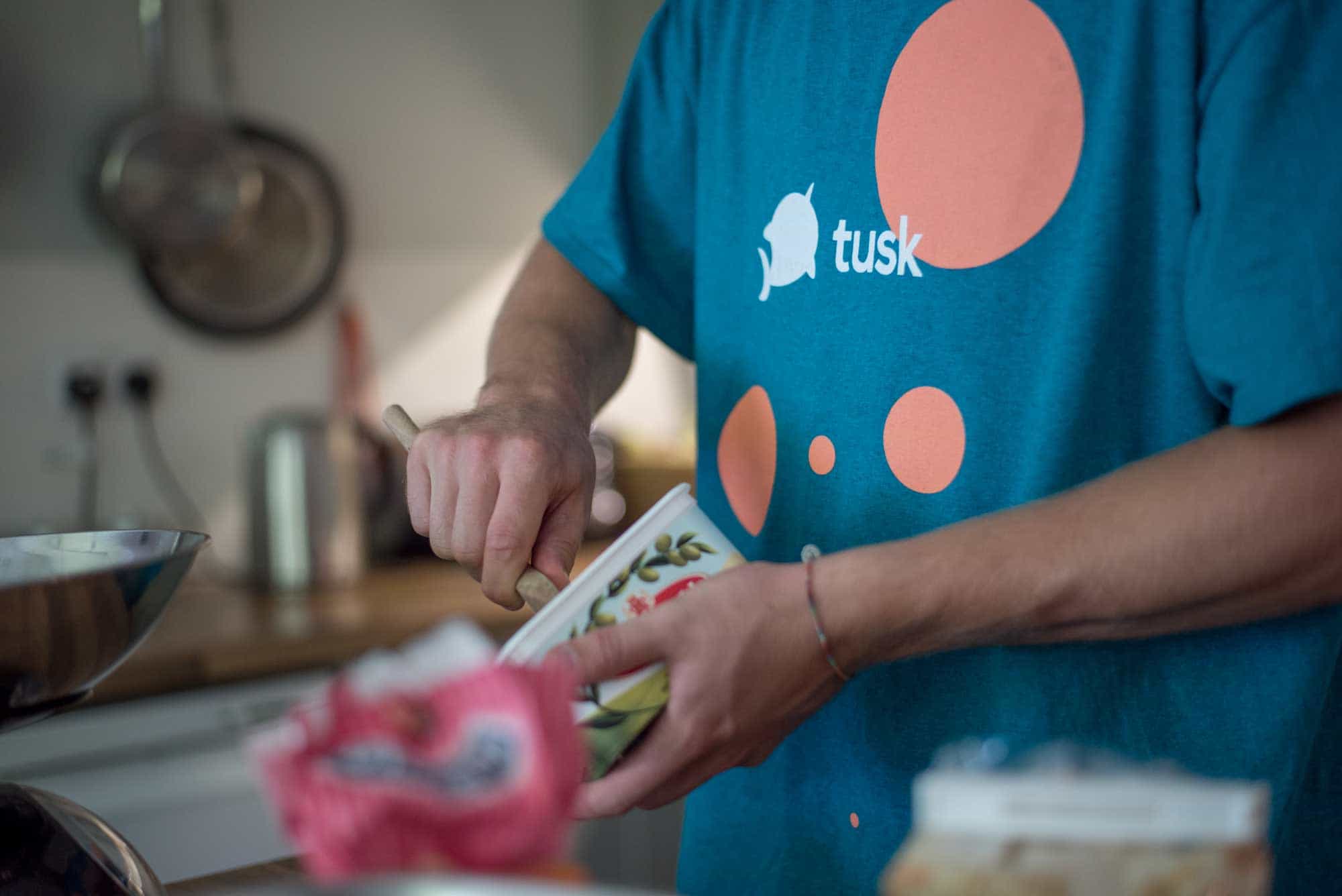Tusk (formerly uWork) was the biggest personal project I have ever taken on. It gave me invaluable experience working with other designers and developers to build a product from just an idea. Working in my spare evenings and weekends, I was responsible for creating and maintaining the brand, product design, marketing, and go to market for the company. Though the company failed to achieve product-market fit and ceased to exist in 2019, I’m very proud to have worked on Tusk and sad to this day it didn’t work out.
After launching uWork, we were forced into a rebrand due to pressure from a company with a similar name, working in a similar market. We had to very quickly get the rebrand up and running so we put our heads together and got to work.
uTask, Flock, Acorn…
Over the first few weeks, we took a step back in order to choose a new name that would form the basis of the brand. 100s of names were suggested, some good, some awful, but we finally agreed on Tusk. We liked it as it was similar to Task, but we replaced the ‘a’ with a ‘u’ to reference the University students that will be doing the Tasks, plus Narwhales are cool.
The logomark was designed using a Fibonacci sequence of circles, arranged to create a Narwhal we call ‘Nelly’. We used this same principle across our whole brand, using Fibonacci circles laid in a 12 column grid to create a bold, colourful, geometric brand.
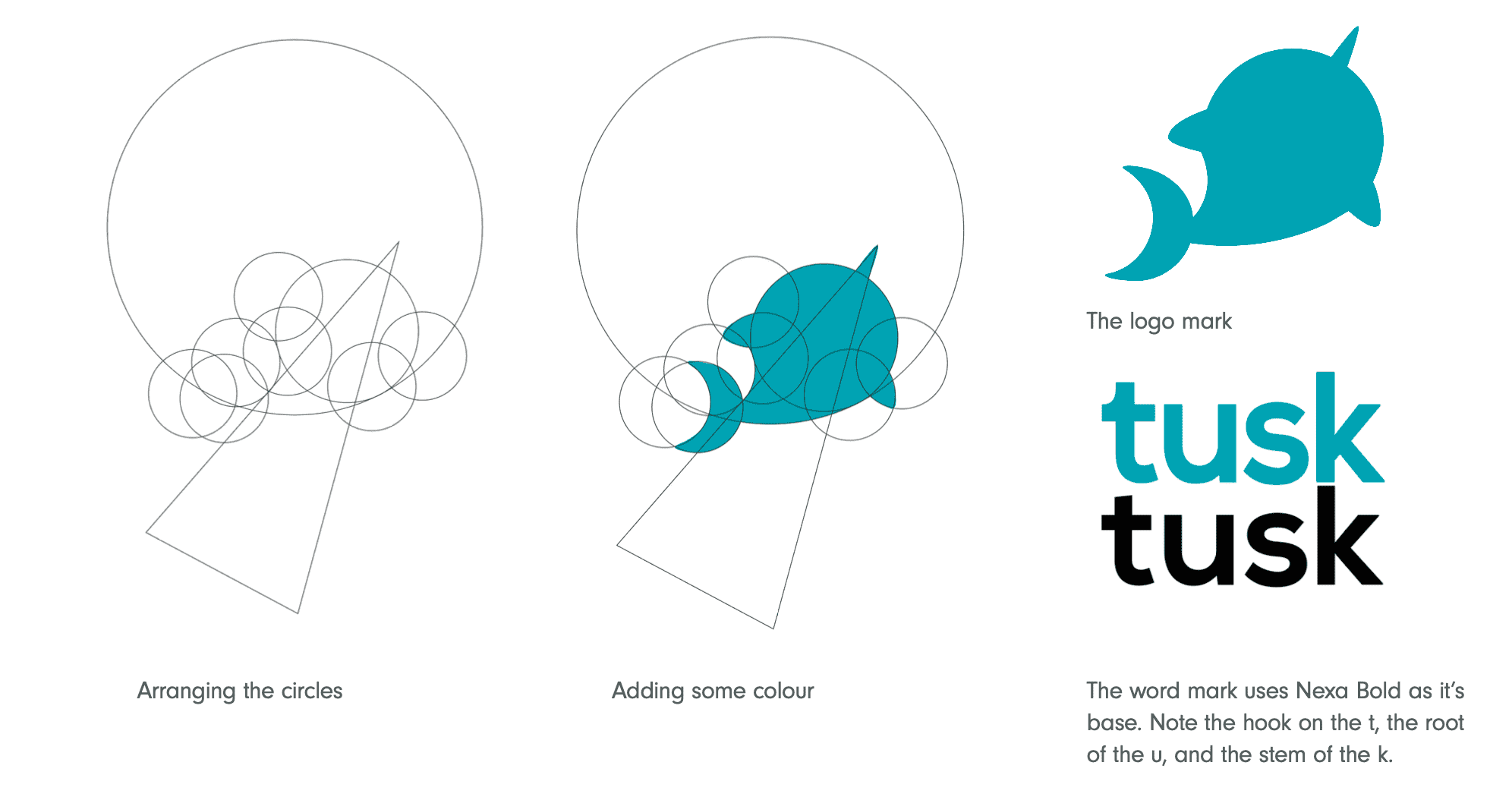
I put together designs for a ‘north star’ concept to act as a general direction for the platform and visual style, before breaking down larger ideas into deliverables. I was responsible for not just designing the user-interface design of the product and defining the roadmap, but also all things marketing materials. From photo shoots to bus shelters, I learned a lot.
Here’s a selection of some of the bits I put together.
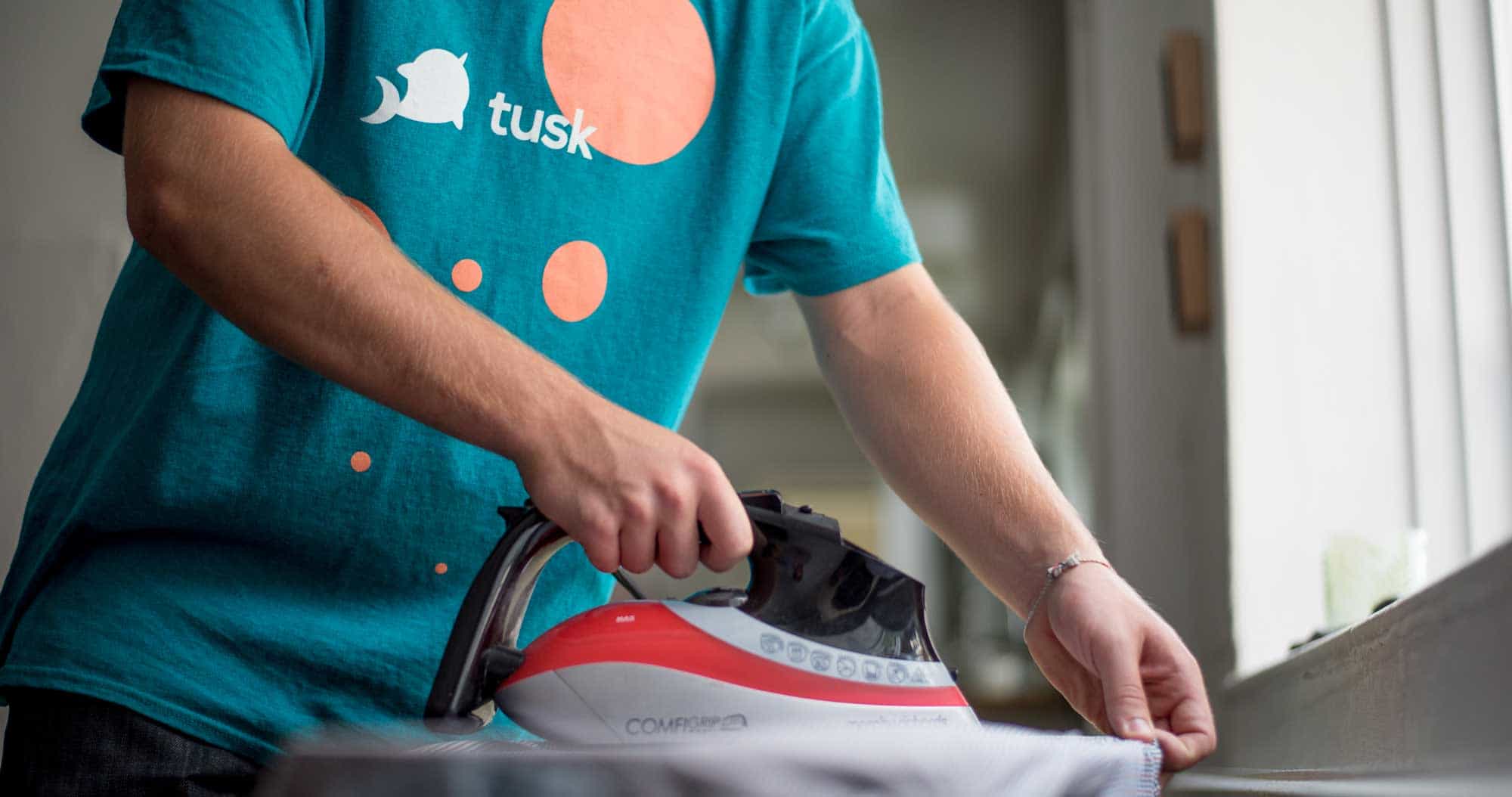
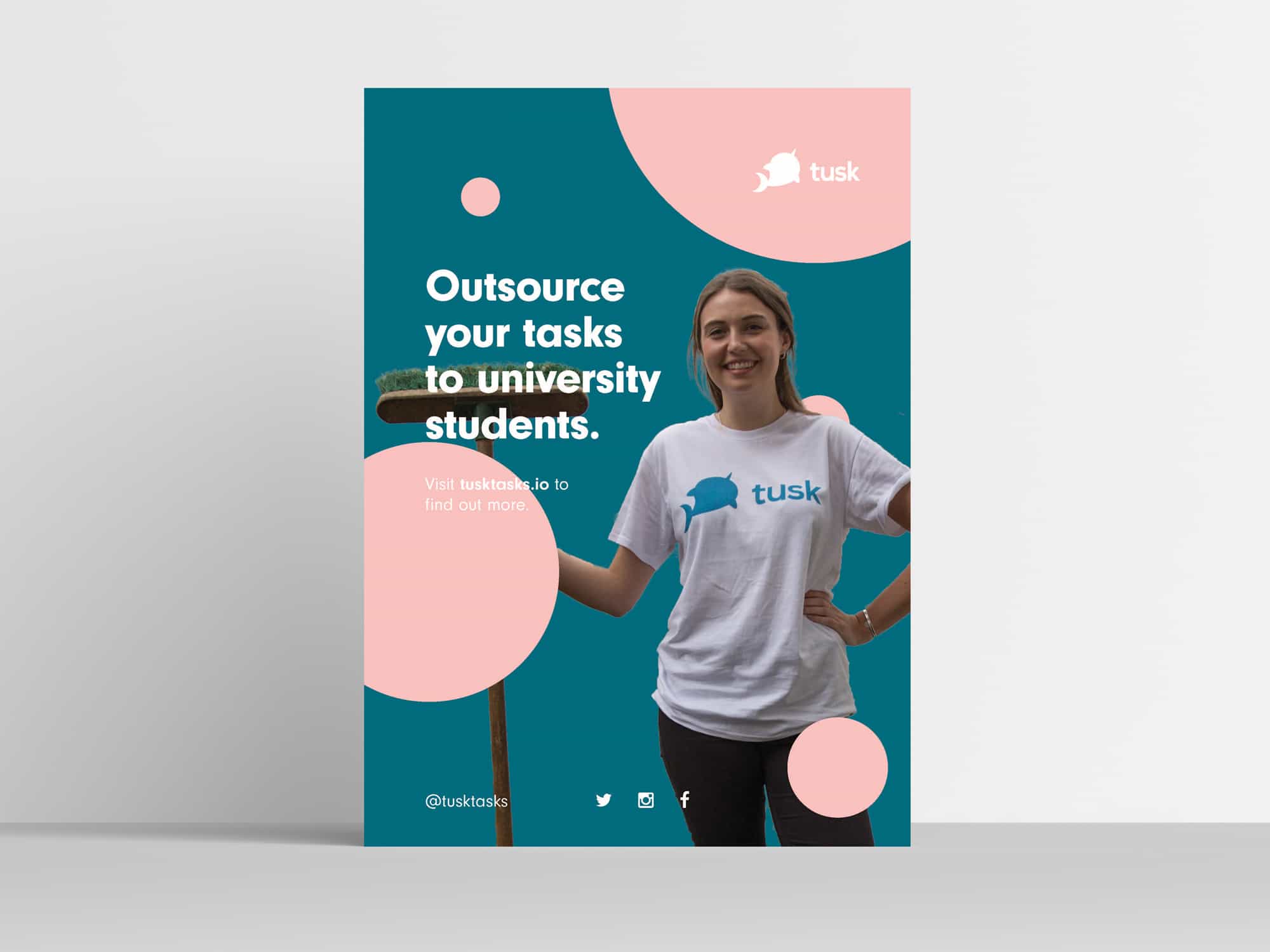
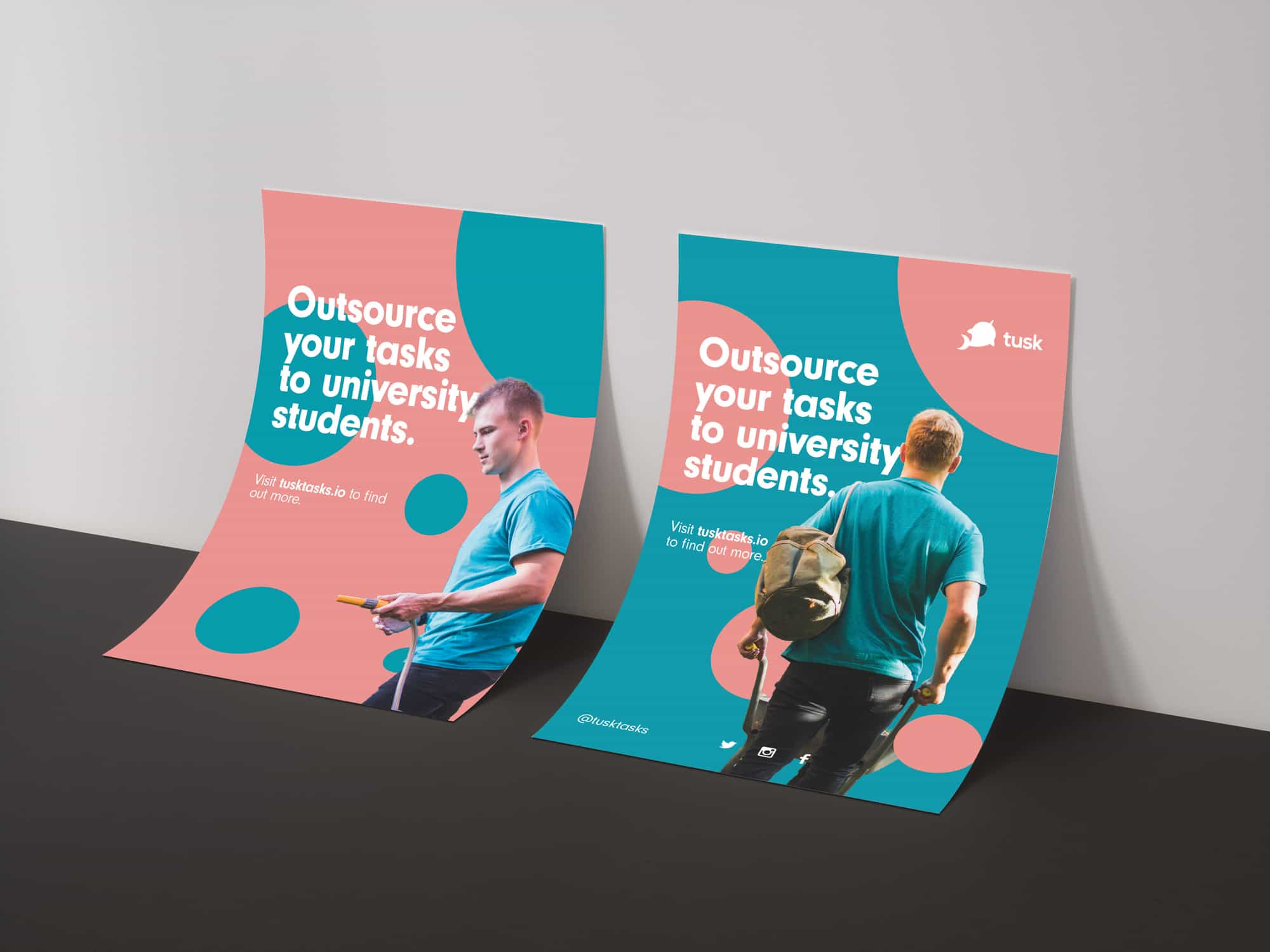
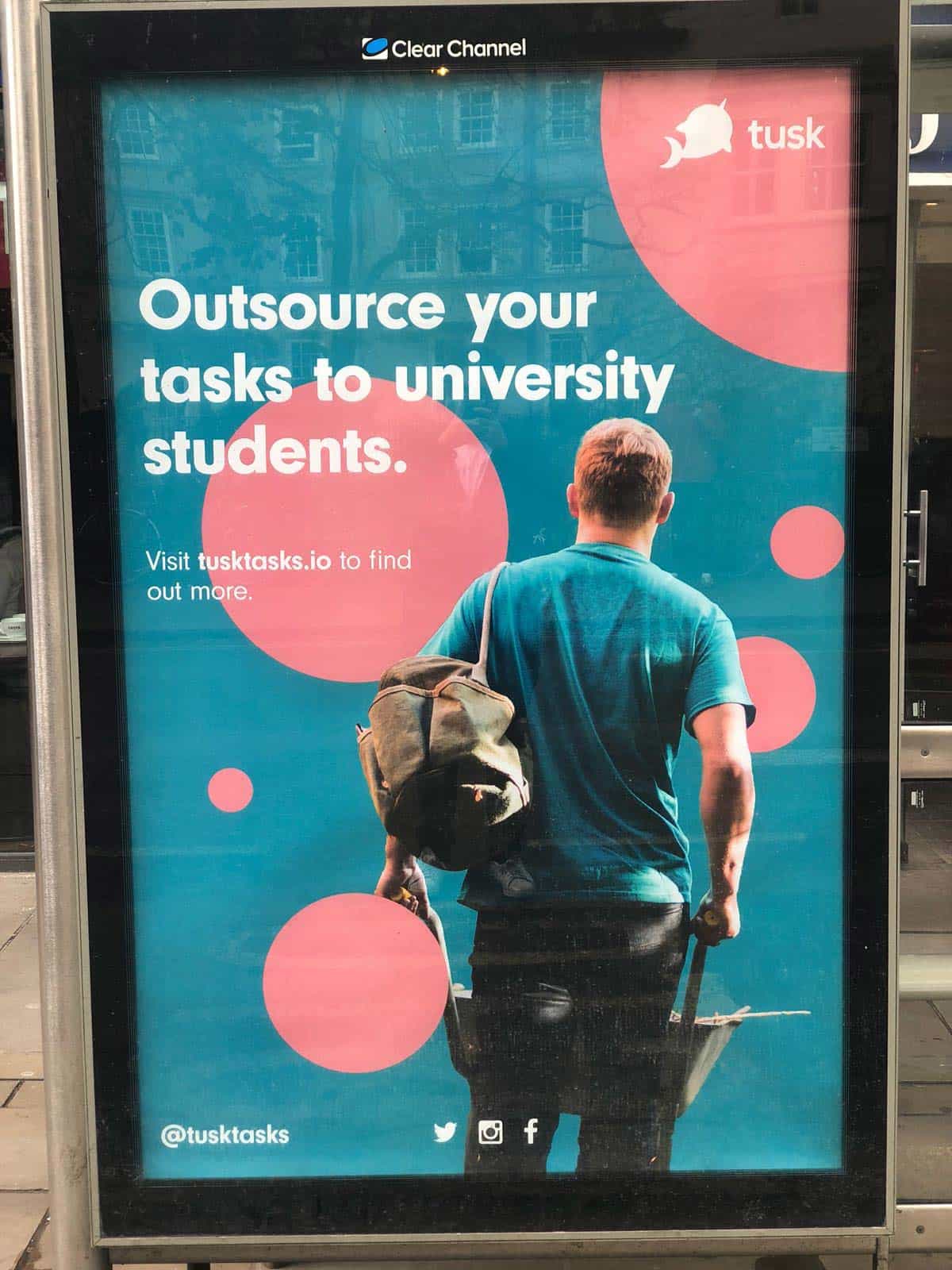
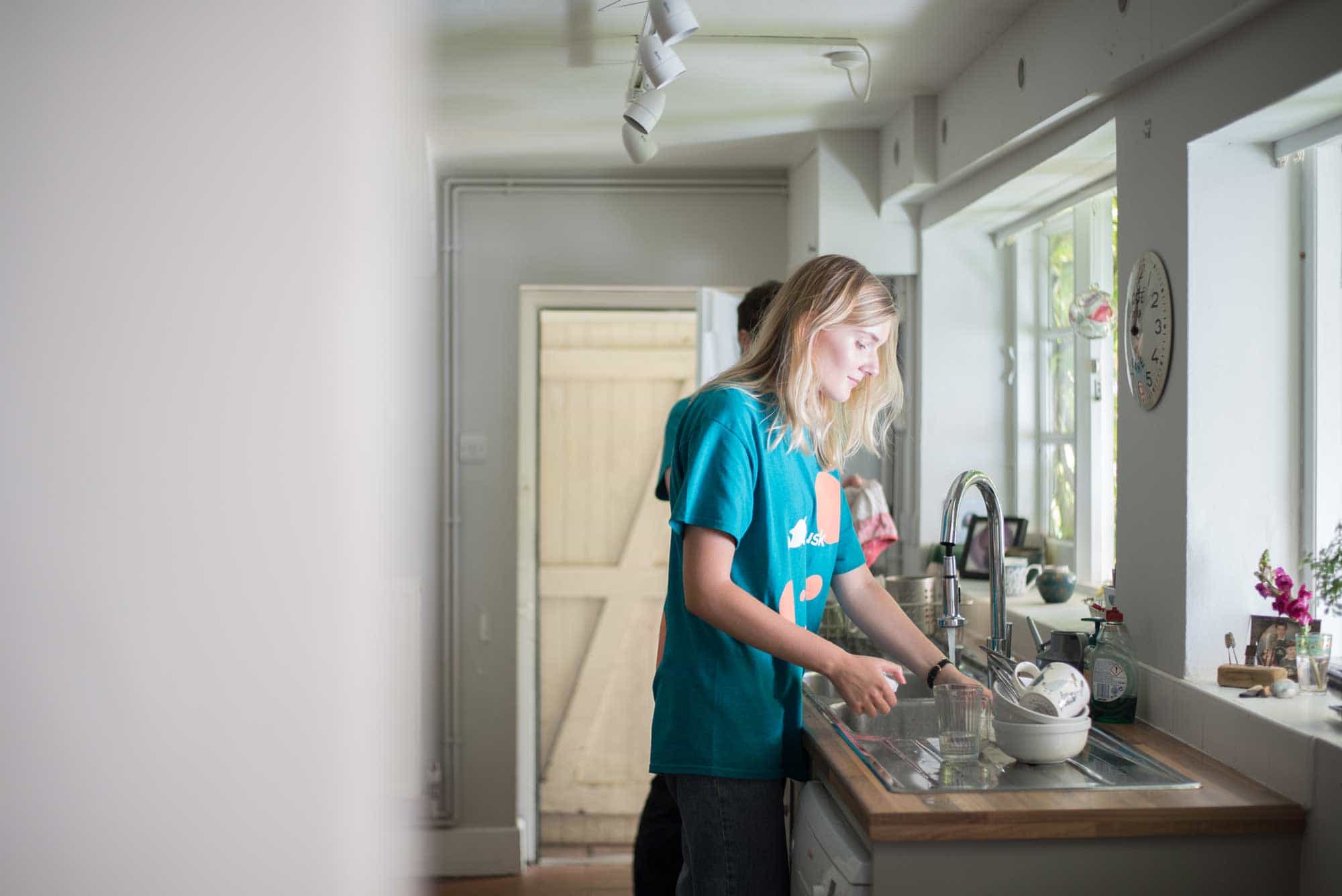
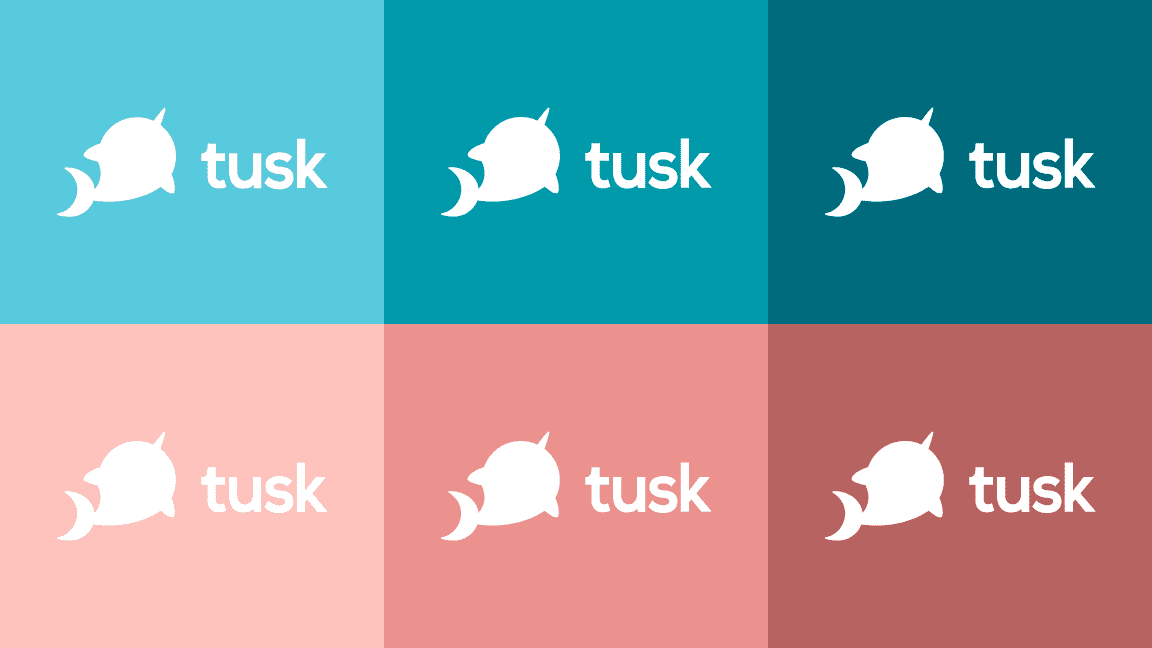
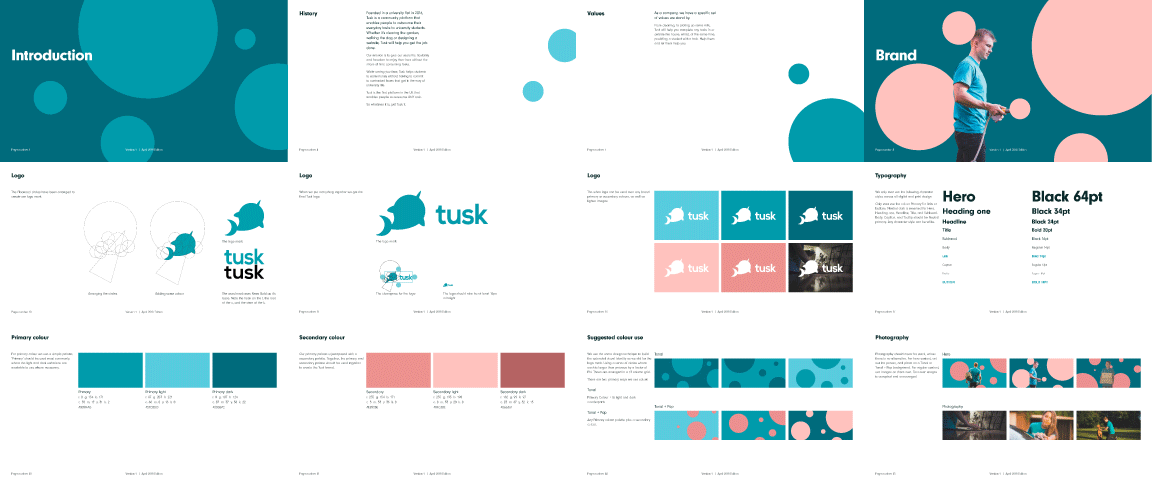
We decided to launch our MVP product in beta. Students could sign up to complete tasks with their ac.uk email address and tasks could be listed in Winchester only. We wanted to treat the launch as a bit of a closed beta where we could test listing, completing, and paying for tasks. Winchester was chosen simply because that’s where the majority of the team were based at the time.
With launch bugs ironed out, Tusk was launched in Winchester and Oxford a few months later.
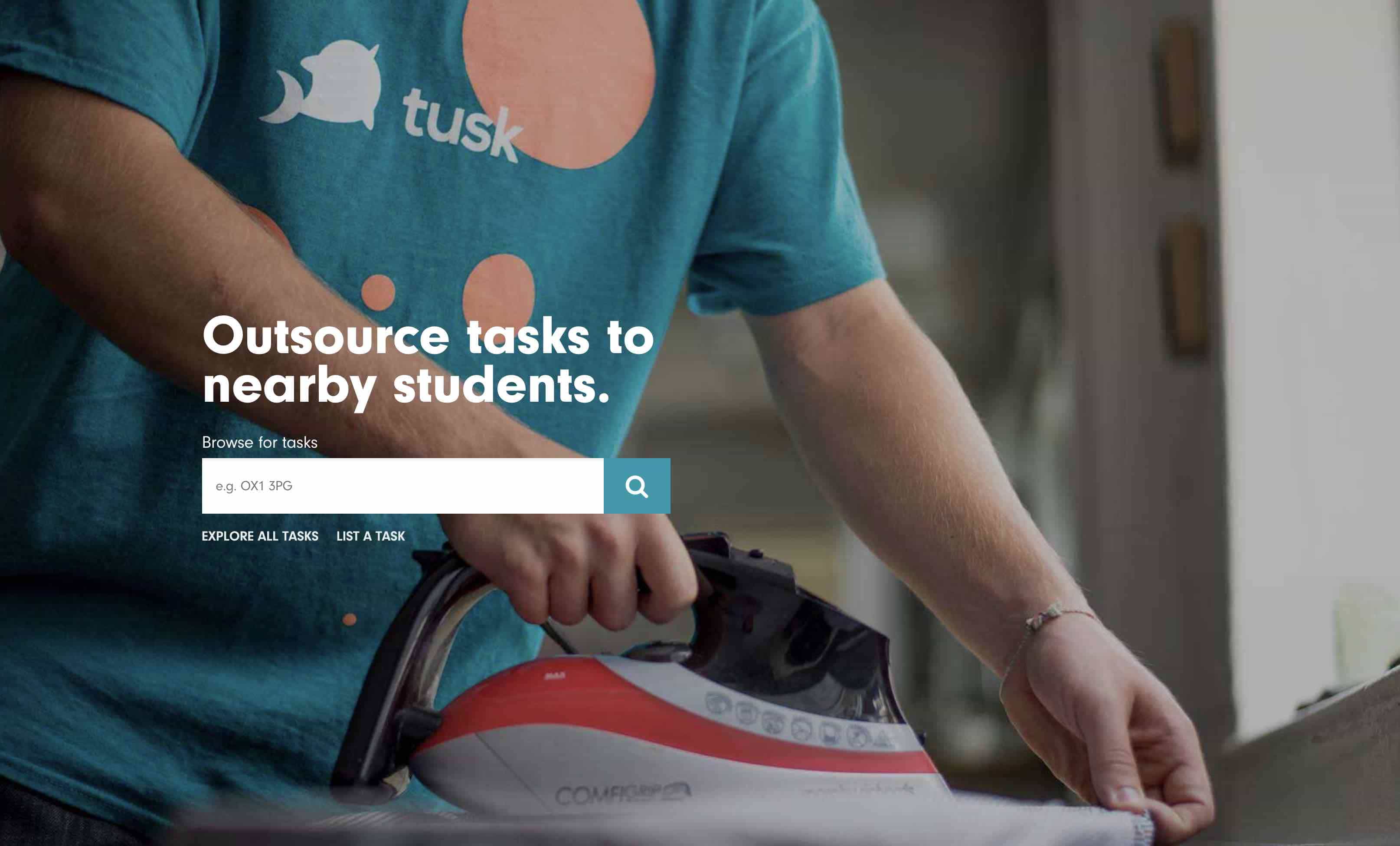
We managed to raise a small investment that we used to run ads across Google and Facebook, as well as working with influencers. A large chunk of the investment was needed for our tech stack. We verified people using their ID to keep the platform secure, we handled payments, and we needed to pay for a few tools that ate up the budget. There was a modest marketing budget left for launch but we saw a pretty impressive number of tasks listed. Word of mouth across students was excellent and we had impressive numbers signing up. We struggled to find people to list tasks from the off. As soon as a task was listed, a student would snap it up straight away.

There was huge disagreement and fallout about the strategy post-launch. One view was to open the product to the whole of the UK and do a national launch. The opposing view was to keep things restricted to Oxford for the time being while we try to improve product-market fit. My view was the latter and it was not shared.
Though we saw initial success with tasks being listed and students signing up, we struggled with two areas:
In late 2018 I stepped away from Tusk along with a few other members. The company ceased to exist in early 2019.
90% of startups fail. Tusk is startup that failed. To this day I think our product was really impressive. You could signup, verify who you were with ID, and list a task in minutes. We had people of all ages listing tasks, paying for tasks, and leaving feedback without problem. It was very simple to use, and having seen things from the lister and tasker perspective, I thought the product was great. With more time, we could have solved some of the issues listed above, but fundamentally I think we needed to focus on one area for longer.
